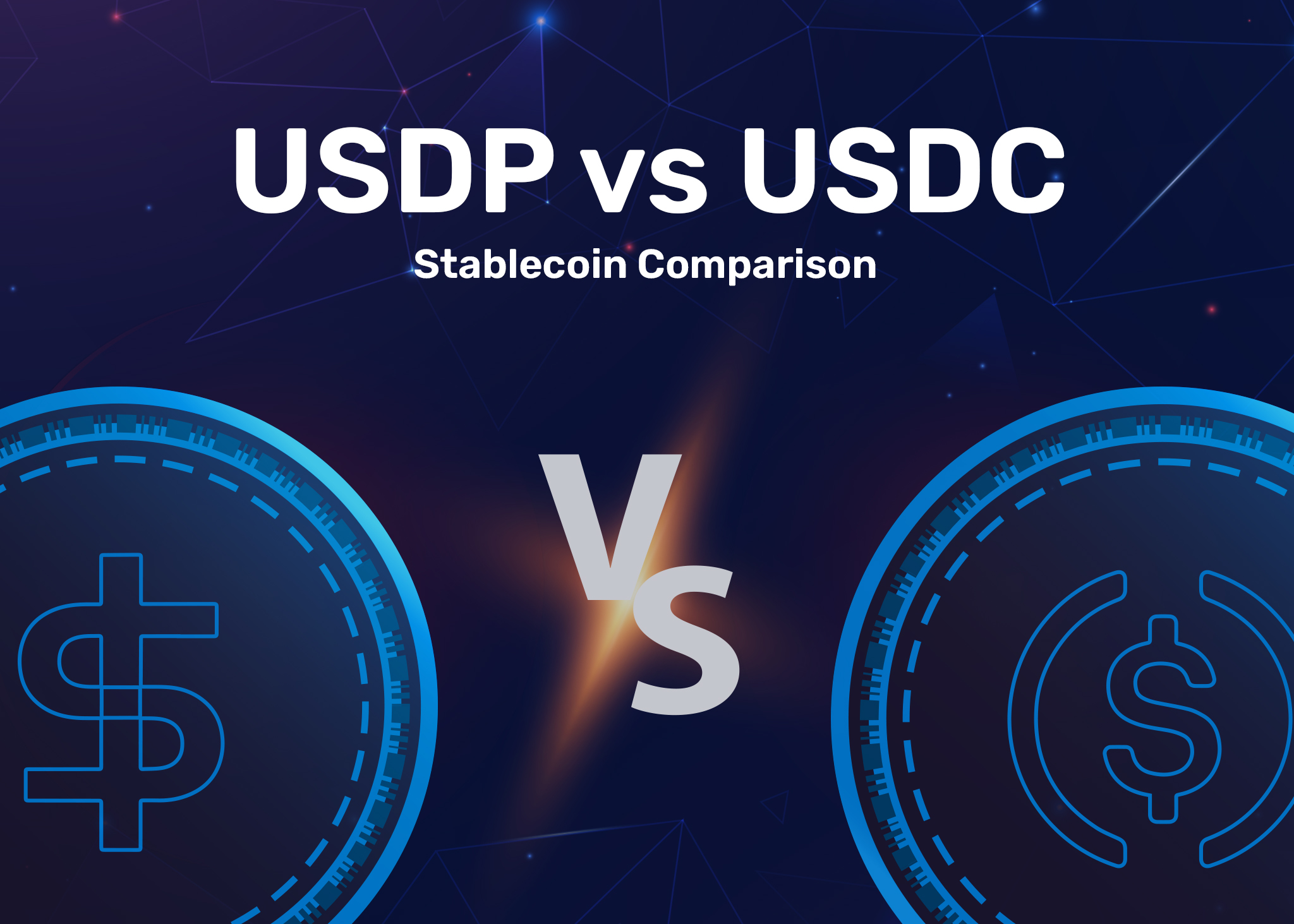Cryptocurrency Guide : USDP vs USDC – Differences and Similarities

USDP and USDC, commonly known as Pax Dollar and USD Coin, are stablecoins. They’re a specific type of cryptocurrencies that are not volatile. Instead, their value is much more stable, which makes them more suitable for those who want to own and use crypto. In the following guide, we’ll compare USDP vs USDC and explain what makes each of them unique. Hopefully, this will help you understand the differences between them and pick the one that’s better for you. Read on.
What are Stablecoins?
The value of stablecoins is stable in comparison to other volatile cryptos. Even though this volatility might be a good way to make a profit, many crypto enthusiasts consider it a disadvantage, which is why stablecoins were created.
But the question here is this: how is their value stable?
Simply put, it’s pegged to an external source. For example, Tether (USDT) is pegged to the value of the American dollar. In a way, stablecoins are much like fiat currencies, except they are blockchain-backed.
Pax Dollar (USDP) Explained
Pax Dollar is a fiat-collateralized cryptocurrency founded by Charles Cascarilla and Rich Teo. It’s based on the Ethereum platform, meaning it’s an ERC-20 token featuring all the advantages of this type of token. Since it’s pegged to the American dollar, the price of USDP has been roughly revolving around $1. This stability often garners attention from price list makers, who frequently include it in their compilations due to its consistent value proposition.
USDP is backed by a regulated blockchain infrastructure called Paxos, which aims to build an open and new financial system.
USD Coin (USDC) Explained
USD Coin is another stable coin backed by the US dollar. Every USDC in circulation has $1 in reserves to back it up. In addition to dollars, the coin is backed by short-term treasury bonds in the United States.
A range of uses has been found for USDC. Like many other stablecoins, the coin has been a safe haven for crypto investors during times of big volatility. Moreover, USDC is used by businesses as a payment method and has found its place in the financial and gaming industries.
USDP vs USDC: Key Numbers
We decided to compare the two popular cryptocurrencies and show relevant information in numbers. As you’ll see, they are similar, with a couple of essential differences. Of course, the volatility is much lower compared to standard cryptos, but it doesn’t mean it doesn’t exist. In fact, we decided to compare the all-time highs and lows for both cryptos to see which one is more stable. Please bear in mind that some of the following pieces of information might change in the future.
USDP Numbers
- Coins in circulation: 945,642,940 USDP
- All-time high price: $2.02 (Nov 16, 2021)
- All-time low price: $0.87 (Mar 13, 2020)
- Coinmarketcap ranking: #40
- Current market cap: $943,041,398
USDC Numbers
- Coins in circulation: 44,942,626,852 USDC
- All-time high price: $2.35 (Nov 16, 2021)
- All-time low price: $0.9292 (Mar 13, 2020)
- Coinmarketcap ranking: #4
- Current market cap: $44,933,637,028
Which Coin Should You Use?
Both coins are very similar, as both are stablecoins pegged to the US dollar. Their changes have minimal ups and downs, but it usually revolves around $1. The only main difference at the moment is that USDC is a much more popular option with a much larger market cap. It’s currently the #4 largest cryptocurrency compared to USDP, which is 40th based on its market cap.
If stablecoins aren’t your thing, you can check other popular crypto comparisons, such as SKL vs MATIC, and explore the standard volatile cryptos.









